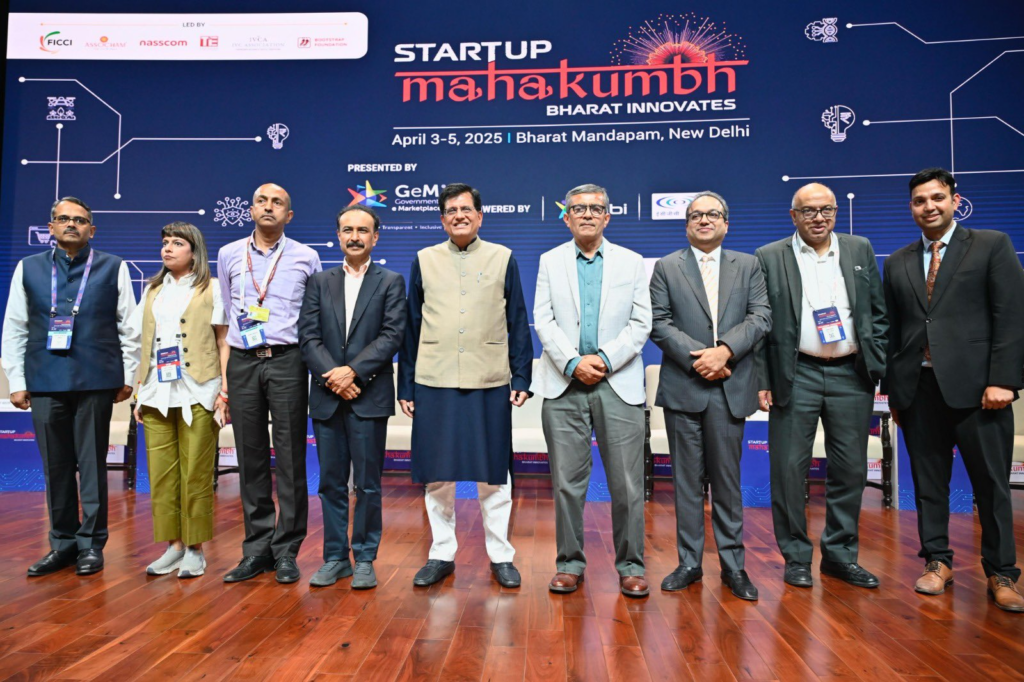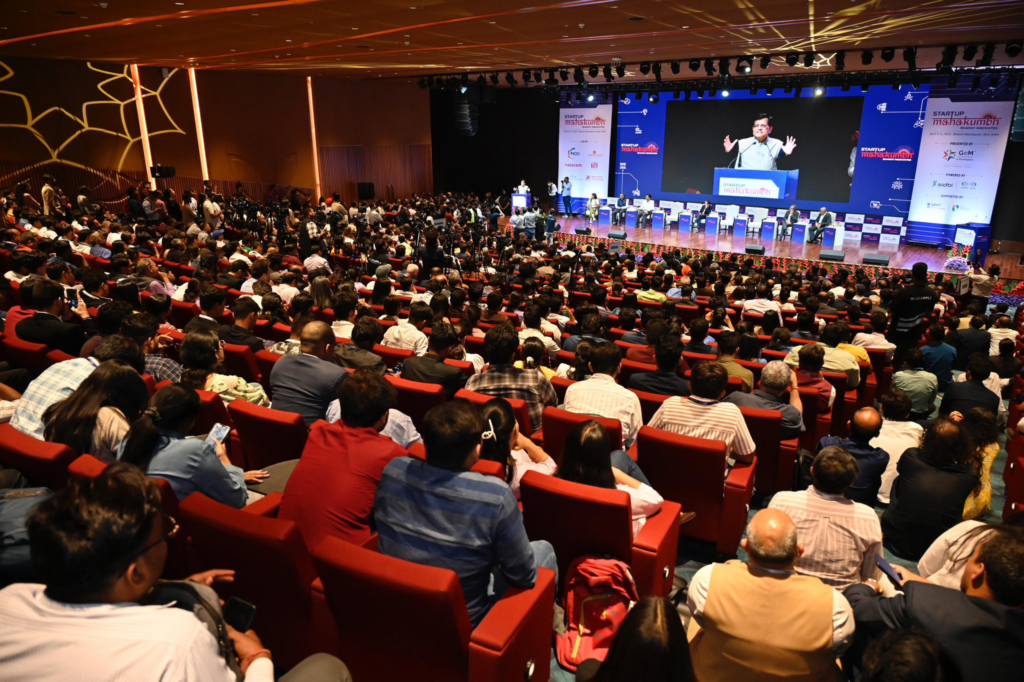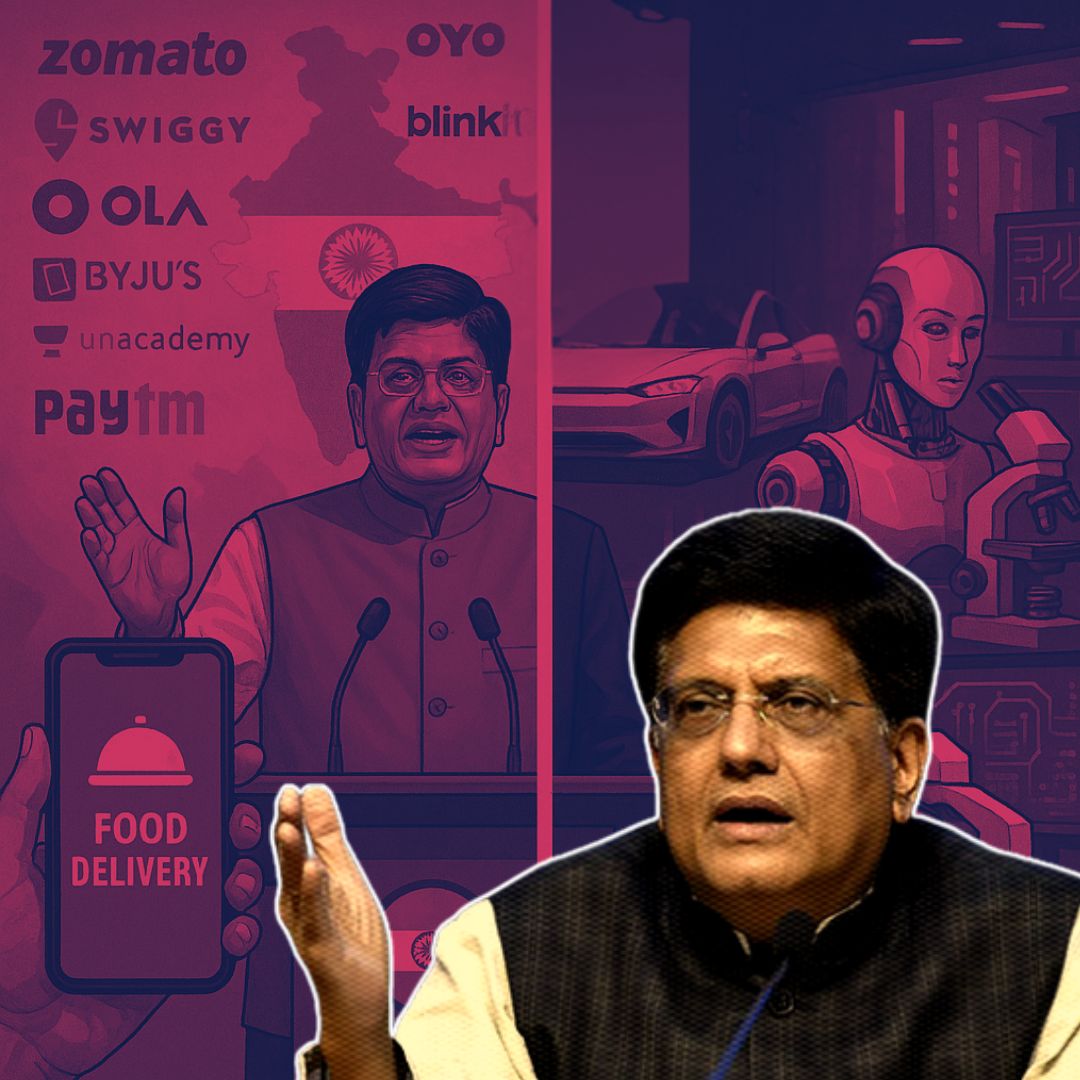Union Commerce Minister Piyush Goyal recently addressed the Startup Mahakumbh 2025, where he criticized India’s startup ecosystem for focusing heavily on food delivery and consumer convenience apps.
He urged startups to shift towards deep-tech innovations like semiconductors and AI, comparing India unfavorably to China’s advancements in electric mobility and battery technology.
Industry leaders such as Zepto CEO Aadit Palicha and former Infosys executive Mohandas Pai have responded, defending the impact of consumer tech startups and calling for more government support. The debate highlights a broader discussion about the direction and potential of India’s startup sector.

The Current Debate
At the heart of Goyal’s critique is the concern that India’s startup boom is more about transactional businesses than transformational technologies. He emphasized that while India has over 157,000 recognized startups and a growing number of unicorns, only about 1,000 are involved in deep-tech areas.
Goyal’s comments have sparked a lively debate, with Zepto’s CEO Aadit Palicha arguing that building companies that solve real problems at scale is indeed a form of technology. Palicha also emphasized the need for government support to create “local champions” in the tech sector.
Mohandas Pai, on the other hand, pointed out that government policies have hindered the growth of deep-tech startups in India. Goyal highlighted the importance of domestic capital investors, stating that a strong foundation of indigenous investment is vital for reducing dependency on foreign capital and ensuring long-term economic resilience.
Challenges and Opportunities
The Indian startup ecosystem faces several challenges, including regulatory hurdles and limited access to domestic capital. Despite these challenges, there are opportunities for growth in deep-tech areas. Goyal’s call to action emphasizes the need for startups to explore sectors that can drive sustainable economic growth and technological advancement.
This includes leveraging India’s strengths in IT and software to develop more complex technologies. For instance, India could focus on developing its semiconductor industry, which is crucial for both domestic electronics manufacturing and global competitiveness. Additionally, investing in AI and renewable energy could help India become a leader in these fields.

Background and Context
The Indian startup ecosystem has grown significantly, becoming the third largest globally after the U.S. and China. However, Goyal’s remarks highlight a perceived imbalance between the focus on consumer convenience apps and the need for more substantial technological innovation.
China’s advancements in areas like electric vehicles, semiconductors, and AI serve as a benchmark for Goyal’s call to action. The minister also expressed concern over the trend of early exits by Indian startups, often to foreign companies, which he believes drains India of its innovation potential.
This critique comes at a time when India is aiming to become a global leader by 2047, emphasizing the need for startups to contribute to nation-building. The government has initiated several programs to support startups, including the Startup India initiative, but more needs to be done to foster deep-tech innovation.
The Logical Indian’s Perspective
The debate sparked by Piyush Goyal’s comments underscores the complex challenges facing India’s startup ecosystem. While it is crucial to recognize the economic and social impact of consumer tech startups, there is also a need to foster deeper technological innovation.
Encouraging dialogue and collaboration between government, industry leaders, and startups can help create a more balanced ecosystem.
As India strives to become a global leader in technology, the question remains: How can we strike a balance between immediate economic benefits and long-term technological advancements, ensuring that our startup ecosystem contributes meaningfully to both national growth and global competitiveness? What steps do you think India should take to achieve this balance?
Truly delighted to address the inaugural day of the #StartupMahakumbh being held at Bharat Mandapam!
— Piyush Goyal (@PiyushGoyal) April 3, 2025
It is indeed very encouraging to see the tremendous response to this year's edition. I believe that India's Startups hold immense promise and should now be prepared to be at the… pic.twitter.com/2moOi3gk7A











